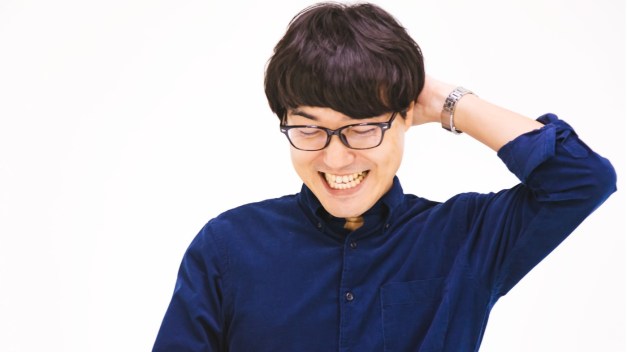
You may have heard there’s only one proper phrase to use, but that’s not true.
According to the common logic of Japanese etiquette, when someone pays you a compliment the best response is to say “Sonna koto arimasen.” If you’ve ever read even the first page of a Japanese phrase book, though, you’ll notice that this is very different from the standard way to say thank you, arigatou gozaimasu.
That’s because sonna koto arimasen doesn’t mean “Thank you,” it means “That’s not true,” or “Not at all.” Humility has always been seen as a virtue in Japanese society, and so classical manners dictate that praise is something to be deflected, lest you look prideful or overly keen to fish for compliments.
But even if old-school etiquette “experts” say it’s poor form to swiftly accept a compliment, is that really how all modern Japanese people feel? A recent tweet from Japanese Twitter user @N_32tree shows that not everyone is quite so rigid in their way of thinking, a least inside their hearts.
容姿褒められたときに「そんなことないです」って返すのは相手の感性を否定することになるから「ありがとうございます」と返すようにしてるんですけど、時々「え?」って顔される
— ナカヤマ皐月 (@N_32tree) October 6, 2020
なんや褒めたやろ今、責任持て
When someone compliments them on their appearance, @N_32tree feels like saying “Sonna koto arimasen” would be the same as rejecting that person’s feelings, and so responds with “Arigatou gozaimasu” instead. Sometimes, though, the compliment-giver then reacts by saying “Huh?” with a surprised expression. “It’s like, ‘You’re the one who complimented me,’” @N_32tree laments, “so take responsibility for what you said.”
The deviation from the standard script being enough to throw some people off balance shows how accustomed Japanese people are to the compliments they give being met with some form of self-deprecation, and indeed, many commenters said they respond with something with a meaning equivalent to sonna koto arimasen, such as iie (literally “no”) or iya, iya (a more casual form of iie, similar to“naw, naw”).
But a number of commenters also shared their frustration at the idea that a compliment is something that must be initially rejected, saying:
“I’ve had do the same thing when I say ‘Thank you’ to their compliment. They look at me like ‘Why are you so quick to accept it?’”
“I’m always worried about what to do. I don’t know whether I need to act accepting of their statement or to act humble about myself.”
“What’s wrong with saying thank you when someone gives you [an emotional] present?”
“I say ‘thank you.’ There are actually times when I honestly think ‘Not at all,’ but I think it’s important enough to thank the person for being kind enough to complement you.”
▼ “Thank you” doesn’t always mean “Thank you for noticing how great I am,” but sometimes just “Thank you for trying to make me feel good.”
Still, in a society where humility is so important, there’s a definite danger of rubbing people the wrong way if you respond to every compliment with a self-assured “Thanks!” Because of that, other commenters offered their own alternatives that try to combine the humble tone of sonna koto arimasen with the grateful joy of giving someone the benefit of the doubt that their praise is sincere, such as:
● Osoreirimasu: This word simultaneity means both “Thank you” and “Excuse me/I’m sorry for making you go to that trouble.” As such, it basically lets the person who gave the compliment interpret it in whatever balance of the two sentiments they think is the most appropriate.
● Anata mo: This means “You too.” While it obviously isn’t going to be applicable to every situation, when you do have the opportunity to return the compliment in kind, it lets you sidestep the risks of looking stuck up or unappreciative by turning the atmosphere into one that lifts up both you and your conversation partner.
● Yatta: This literally means “I did it,” but it’s a general-purpose phrase for when something good happens to you. It’s a super-casual expression, but the person who recommended this points out that because it’s so short, it lets you move on to the next conversation topic quickly, instead of making the compliment/how great you are the point of attention.
● Sou ka na?: This directly translates to “Is that so?”, but the na at the end adds an extra note of uncertainty. This lets you express doubt at the compliment about you being an absolute cosmic truth, while not saying it’s a flat-out mistake either. It also lets you put the ball back in the compliment-giver’s court, and if they emphatically say “Yes” you can reply with a “Thank you,” or, if their insistence is lukewarm, you assume it was just idle flattery and use one of the more humble-sounding options instead.
● Sonna koto nai kedo ureshii desu. Arigatou!: The kitchen sink approach, this one covers all possible bases with “Not at all, but it makes me happy [to hear you say that]. Thank you!”
OK, so with all of these options to choose from, which one is the best? That’s going to depend on the nature of the compliment, and also your relationship with the compliment-giver. Frustrating and stuffy as it might seem even to Japanese people, deflecting praise is still considered classically good manners in Japan, so if you respond to a complement from a teacher, boss, or client with a lightning-fast “Arigatou!”, you’re probably not going to make a very good impression, and at least some attempt at a sonna koto arimasen equivalent is the wiser choice. And even if you do eventually accept the compliment, giving some of the credit to your counterparts and teammates, and adding that you hope to do even better next time, is probably a classy move.
But as the Twitter discussion shows, not everyone is averse to people accepting a compliment without first putting themselves down. In casual situations among friends, there’s definitely some wiggle room, especially if you use some of the mixed-purpose responses discussed above.
In other words, even with Japan’s reputation as a country with rigid cultural norms, there’s no single phrase that fits all relationships and situations. At the very least though, if someone has told you that you have to do everything you can to fight off every single compliment a Japanese person may ever give you, lest you deeply offend them with your poor manners?
Sonna koto arimasen.
Source: Twitter/@N_32tree via Hachima Kiko
Top image: Pakutaso
Insert images: Pakutaso (1, 2)
● Want to hear about SoraNews24’s latest articles as soon as they’re published? Follow us on Facebook and Twitter!
Follow Casey on Twitter, where all the compliments he gives are genuine.



 Should saying thanks at a Japanese convenience store go without saying?
Should saying thanks at a Japanese convenience store go without saying? Two incredibly important phrases to remember when shopping in Japan
Two incredibly important phrases to remember when shopping in Japan In Kyoto, “Hey, you’ve got a really nice watch” is NOT a compliment, Japanese businessman says
In Kyoto, “Hey, you’ve got a really nice watch” is NOT a compliment, Japanese businessman says Do you need to apologize when using a credit card in Japan?
Do you need to apologize when using a credit card in Japan? How to respond to Japanese people saying “I don’t speak English” when you’re speaking Japanese?
How to respond to Japanese people saying “I don’t speak English” when you’re speaking Japanese? Studio Ghibli releases new “komorebi” plush toys from Princess Mononoke and Spirited Away
Studio Ghibli releases new “komorebi” plush toys from Princess Mononoke and Spirited Away Pokémon popcorn buckets coming to Japan’s first-ever permanent Pokémon theme park zone
Pokémon popcorn buckets coming to Japan’s first-ever permanent Pokémon theme park zone Japan releases first official sakura cherry blossom forecast for 2026
Japan releases first official sakura cherry blossom forecast for 2026 These are Tokyo train lines people most want to live along【Survey】
These are Tokyo train lines people most want to live along【Survey】 Archfiend Hello Kitty appears as Sanrio launches new team-up with Yu-Gi-Oh【Pics】
Archfiend Hello Kitty appears as Sanrio launches new team-up with Yu-Gi-Oh【Pics】 Heart/body-warming anime video is a beautiful love letter to family and miso soup【Video】
Heart/body-warming anime video is a beautiful love letter to family and miso soup【Video】 All Lotteria fast food restaurants in Japan to close by the end of March
All Lotteria fast food restaurants in Japan to close by the end of March Racing into our stomachs this winter are motorcycle fuel tank-shaped bento
Racing into our stomachs this winter are motorcycle fuel tank-shaped bento Studio Ghibli adds new Kiki’s Delivery Service notebook and ceramic cake case to stores in Japan
Studio Ghibli adds new Kiki’s Delivery Service notebook and ceramic cake case to stores in Japan We try the Jack & Coke canned cocktail to see if it’s any better than mixing one yourself
We try the Jack & Coke canned cocktail to see if it’s any better than mixing one yourself Starbucks Japan releases new drinkware and goods for Valentine’s Day
Starbucks Japan releases new drinkware and goods for Valentine’s Day Visiting Japan’s Gyarados Pokémon park in the city with a special connection to Magikarp【Photos】
Visiting Japan’s Gyarados Pokémon park in the city with a special connection to Magikarp【Photos】 Majority of Japanese women in survey regret marrying their husband, but that’s only half the story
Majority of Japanese women in survey regret marrying their husband, but that’s only half the story Massive manga collaboration bringing 100 years of Shueisha manga to Uniqlo T-shirts【Photos】
Massive manga collaboration bringing 100 years of Shueisha manga to Uniqlo T-shirts【Photos】 Japan’s kid-friendly ski program is now selling Pikachu snowboards for a limited time only
Japan’s kid-friendly ski program is now selling Pikachu snowboards for a limited time only Totoro cream puffs and Catbus cookies are finally available in downtown Tokyo
Totoro cream puffs and Catbus cookies are finally available in downtown Tokyo Japanese vending machine serves up unique drinks at four Tokyo train stations
Japanese vending machine serves up unique drinks at four Tokyo train stations Tokyo pub explicitly soft-bans customers older than 39 from entering
Tokyo pub explicitly soft-bans customers older than 39 from entering 10 times to avoid traveling in Japan in 2026
10 times to avoid traveling in Japan in 2026 Starbucks Japan ready to get Year of the Horse started with adorable drinkware and plushies【Pics】
Starbucks Japan ready to get Year of the Horse started with adorable drinkware and plushies【Pics】 Starbucks Japan releases new Frappuccino and latte for Valentine’s Day
Starbucks Japan releases new Frappuccino and latte for Valentine’s Day Our 52-year-old pole dancing reporter shares his tips for achieving your New Year’s exercise goal
Our 52-year-old pole dancing reporter shares his tips for achieving your New Year’s exercise goal Ramen restaurant’s English menu prices are nearly double its Japanese ones, denies discriminating
Ramen restaurant’s English menu prices are nearly double its Japanese ones, denies discriminating Japanese beef bowl chain Sukiya’s 2026 Smile Box lucky bag basically pays for itself
Japanese beef bowl chain Sukiya’s 2026 Smile Box lucky bag basically pays for itself Lacquerware supplier to emperor of Japan and Pokémon team up for new tableware
Lacquerware supplier to emperor of Japan and Pokémon team up for new tableware Survey asks foreign tourists what bothered them in Japan, more than half gave same answer
Survey asks foreign tourists what bothered them in Japan, more than half gave same answer Japan’s human washing machines will go on sale to general public, demos to be held in Tokyo
Japan’s human washing machines will go on sale to general public, demos to be held in Tokyo We deeply regret going into this tunnel on our walk in the mountains of Japan
We deeply regret going into this tunnel on our walk in the mountains of Japan Studio Ghibli releases Kodama forest spirits from Princess Mononoke to light up your home
Studio Ghibli releases Kodama forest spirits from Princess Mononoke to light up your home Major Japanese hotel chain says reservations via overseas booking sites may not be valid
Major Japanese hotel chain says reservations via overseas booking sites may not be valid Put sesame oil in your coffee? Japanese maker says it’s the best way to start your day【Taste test】
Put sesame oil in your coffee? Japanese maker says it’s the best way to start your day【Taste test】 No more using real katana for tourism activities, Japan’s National Police Agency says
No more using real katana for tourism activities, Japan’s National Police Agency says Starbucks Japan reveals new sakura drinkware collection, inspired by evening cherry blossoms
Starbucks Japan reveals new sakura drinkware collection, inspired by evening cherry blossoms Updated cherry blossom forecast shows extra-long sakura season for Japan this year
Updated cherry blossom forecast shows extra-long sakura season for Japan this year How should a guy say “I” in Japanese? Japanese women give their opinions【Survey】
How should a guy say “I” in Japanese? Japanese women give their opinions【Survey】 Should you say “Itadakimasu,” Japan’s pre-meal expression of thanks, when eating by yourself?
Should you say “Itadakimasu,” Japan’s pre-meal expression of thanks, when eating by yourself? Kyoto code cracked? Japanese bartender translates Kyotoites’ compliments into hidden insults
Kyoto code cracked? Japanese bartender translates Kyotoites’ compliments into hidden insults The tricky game of wits that sometimes lurks behind a Kyoto granny’s compliment
The tricky game of wits that sometimes lurks behind a Kyoto granny’s compliment Is the Japanese Word for “Thank You” Losing Its Meaning?
Is the Japanese Word for “Thank You” Losing Its Meaning? Japanese manners debate: Is it OK to tell your coworkers “I’ve found a new job?”
Japanese manners debate: Is it OK to tell your coworkers “I’ve found a new job?” Kyoto’s “ikezu” culture of backhanded compliments explained in hilarious souvenir sticker series
Kyoto’s “ikezu” culture of backhanded compliments explained in hilarious souvenir sticker series Mr. Sato is sorry for not taking your compliment well
Mr. Sato is sorry for not taking your compliment well Who has better manners? Blogger lists three things foreigners do that impress even the Japanese
Who has better manners? Blogger lists three things foreigners do that impress even the Japanese Japanese etiquette lesson: Should you fold up your own futon when leaving a ryokan inn?
Japanese etiquette lesson: Should you fold up your own futon when leaving a ryokan inn? Survey about Japanese teens’ first sexual experience tries to draw line between “love” and “love”
Survey about Japanese teens’ first sexual experience tries to draw line between “love” and “love” The Japanese language has a special honorific suffix just for talking to athletes
The Japanese language has a special honorific suffix just for talking to athletes Should you dip your egg sushi in soy sauce before you eat it? Survey asks Japanese diners
Should you dip your egg sushi in soy sauce before you eat it? Survey asks Japanese diners Five magic Japanese phrases to know before starting a job in Japan
Five magic Japanese phrases to know before starting a job in Japan To –san or not to –san? Should you use the Japanese honorific suffix when speaking English?
To –san or not to –san? Should you use the Japanese honorific suffix when speaking English? Is a woman “middle-aged” at 30? 40? 50? Japanese men and women give different answers in poll
Is a woman “middle-aged” at 30? 40? 50? Japanese men and women give different answers in poll
Leave a Reply